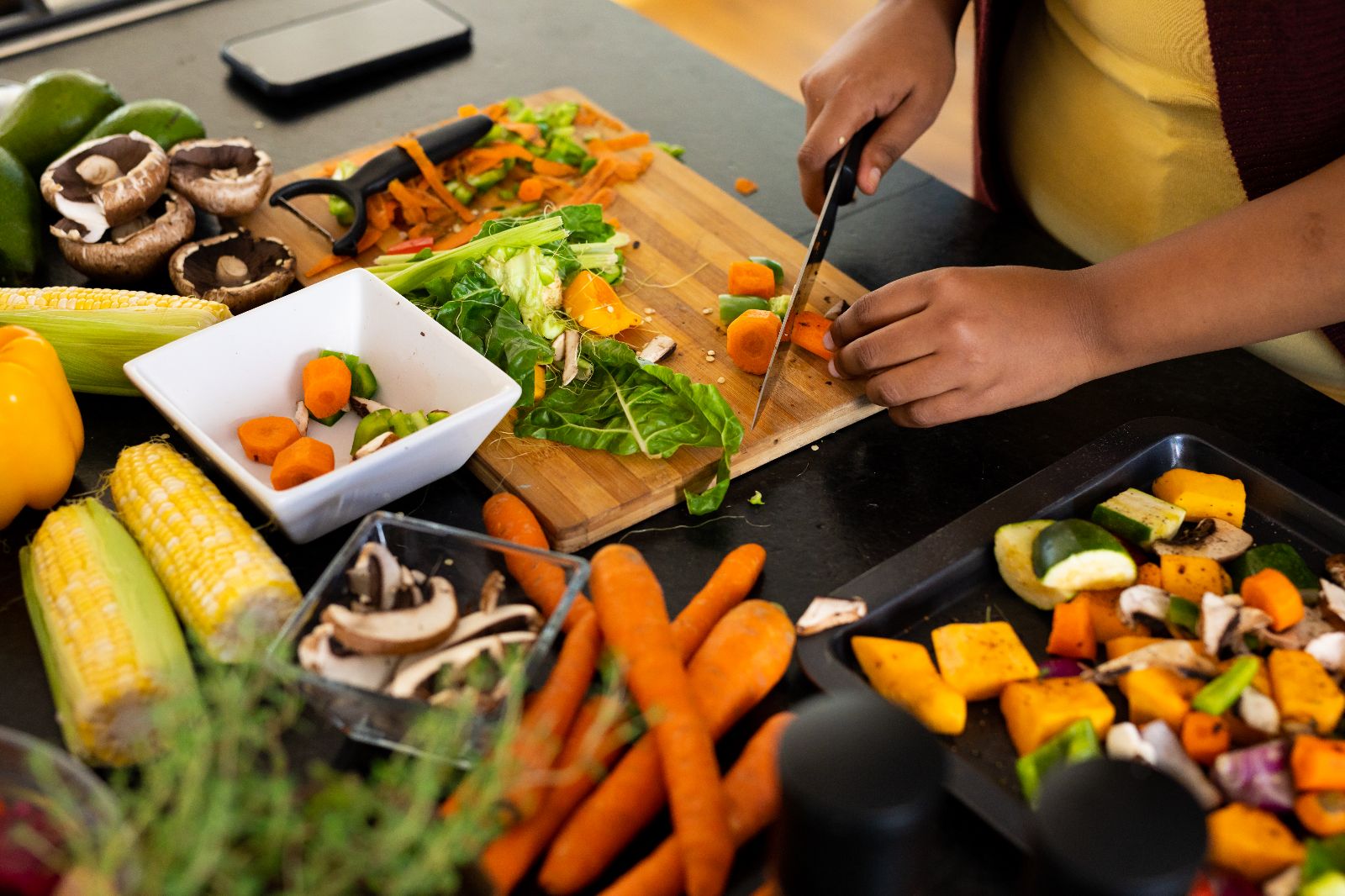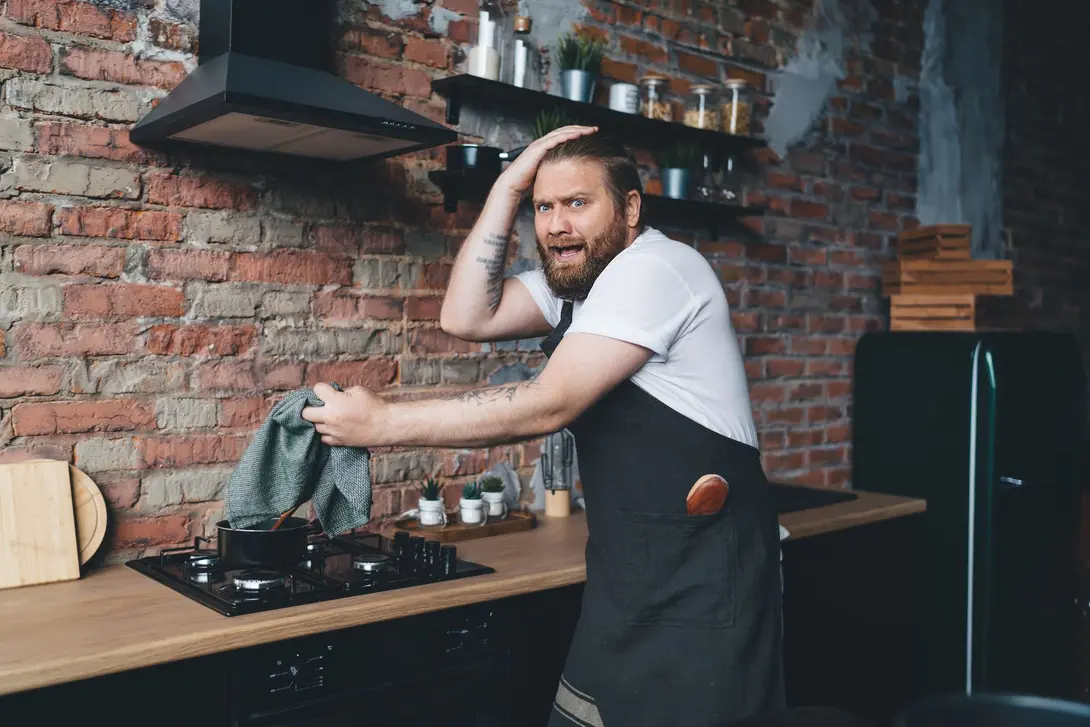In today's busy world, where most people spend much of their time away from home, cooking can seem like a tedious and overwhelming task. Additionally, cooking can be an intimidating skill for beginners, but with the right guidance and some practical tips, anyone can become a competent chef.
Today we want to provide all those who want to get started in the kitchen with a series of useful tips that will make the cooking process easier, more organized and more enjoyable. Get ready to discover how you can transform your kitchen into a space of creativity and flavor!
The importance of knowing how to cook
Knowing how to cook is not only a practical skill, but also a door to a healthier and more satisfying life. Cooking your own meals allows you to control the ingredients you consume, which can result in a more balanced and nutritious diet. Plus, home cooking is a great way to save money and experiment with different flavors and culinary cultures. Beyond the practical benefits, cooking can be a relaxing and rewarding activity that encourages creativity and emotional well-being.
Knowing how to cook not only gives you the independence of not depending on restaurants or processed foods to meet your nutritional needs, but it also offers a number of additional benefits:
- Saving money: Cooking at home is usually much cheaper than eating out.
- Healthy: When cooking at home, you can control the ingredients and preparation of your meals, allowing you to choose healthier options and avoid excessive consumption of fats, sugars and sodium.
- Creativity: Cooking allows you to explore your creativity and experiment with different flavors, textures and combinations of ingredients.
- Union: Cooking together can be a fun and enriching family or social activity that encourages togetherness and teamwork.

Cooking Tips for Beginners
If you're taking your first steps into the culinary world, don't worry if you feel a little lost or insecure. With a little practice, patience, and some helpful tips, you can become a good cook in no time.
Plan your recipes in advance
One of the first steps to being a successful cook is to plan your recipes in advance. Having a clear plan will help you organize your ingredients and timing, which will reduce stress and increase efficiency in the kitchen. Choose your recipes for the week, make a shopping list and make sure you have everything you need before you start cooking.
Defrost with time
If you plan to cook with frozen ingredients, be sure to defrost them well in advance. Thawing food in the refrigerator overnight is the safest and most effective way. Avoid defrosting at room temperature to prevent the proliferation of bacteria.
Organize your space before you start
Having a neat and organized kitchen is crucial for a smooth cooking experience. Before you start cooking, make sure your workspace is clean and all utensils and ingredients are within reach. This will allow you to work more efficiently and enjoy the process.
Use meters
Using accurate measurers is essential to following recipes correctly, especially when it comes to baking. Measuring ingredients accurately ensures that you get the desired results and avoid culinary disasters.
Use good quality pans
Investing in good quality pans can make a big difference in your kitchen. High-quality pans distribute heat evenly and reduce the chance of food burning or sticking. In the long run, a good frying pan can save you time and effort.
Add salt to the water after boiling
Adding salt to the cooking water once it has started to boil is a good practice to ensure that it dissolves properly and is distributed evenly. This trick is especially useful when cooking pasta and vegetables.
Use a wooden shovel to stop the boiling water
If you've ever had trouble with boiling water spilling over, try this simple trick: Place a wooden scoop over the pot. The wood breaks up bubbles and prevents water from overflowing.
Cut the chicken with scissors
Kitchen shears are an incredibly useful tool, especially when it comes to cutting chicken. Using them instead of a knife can make the process faster and safer, allowing you to cut uniform and effortless pieces.
Large foods are cooked over low heat
Cooking large foods, such as roasts or stews, low and slow ensures that they cook evenly and stay juicy and tender. This method also allows the flavors to develop and blend better.
Garlic burns quickly
Garlic is a delicious ingredient, but it burns quickly and can leave a bitter taste in your dish. Add it at the end of cooking or cook over low heat to avoid burning.
Caramelized onion should not contain sugar
Caramelization of the onion should be a natural process, without the need to add sugar. Cook the onions slowly over medium-low heat, allowing their natural sugars to release and caramelize, resulting in a deep, sweet flavor.
Use extra virgin olive oil
Extra virgin olive oil is a healthy and tasty option for cooking. Its high antioxidant and healthy fat content makes it an excellent choice for a variety of dishes, from salads to stir-fries.
Use spices
Spices are the key to adding flavor and depth to your dishes. Don't be afraid to experiment with different spices and combinations to discover new flavors and make your meals more interesting and tasty.
Prevent fish from sticking to the pan with lemon peels on the base
Placing lemon peels on the bottom of the pan before cooking the fish is a clever trick to prevent sticking. Plus, lemon adds a touch of fresh flavor to the fish.
Try what you are preparing
Tasting your food as you cook is crucial to ensure the flavors are balanced and adjusted to your taste. Don't wait until the end to make adjustments; Test and adjust as you go.
Wash your utensils very well
Hygiene in the kitchen is essential. Be sure to wash all your utensils thoroughly, especially after handling raw foods like meat or chicken, to avoid cross-contamination and keep your kitchen safe.
Clean on the go
Keeping your workspace clean while cooking can make the process much more enjoyable. Wipe up spills and put away utensils and ingredients as you use them to maintain a tidy, efficient environment.
Do not put the spices on top of the extractor or on top of the burner.
Storing spices near heat can cause them to lose their flavor and aroma. Keep your spices in a cool, dark place to ensure they stay fresh and tasty.
You don't need every kitchen accessory you see, just a few
It's easy to get carried away by the number of kitchen gadgets available, but in reality, you only need a few good quality utensils to cook well. Invest in essential, versatile tools that you will actually use.
To brown the vegetables, stop moving them
If you want your vegetables to brown and take on a caramelized flavor, leave them still in the pan for a few minutes before moving them. This allows them to develop a tasty, golden crust.

Comentarios